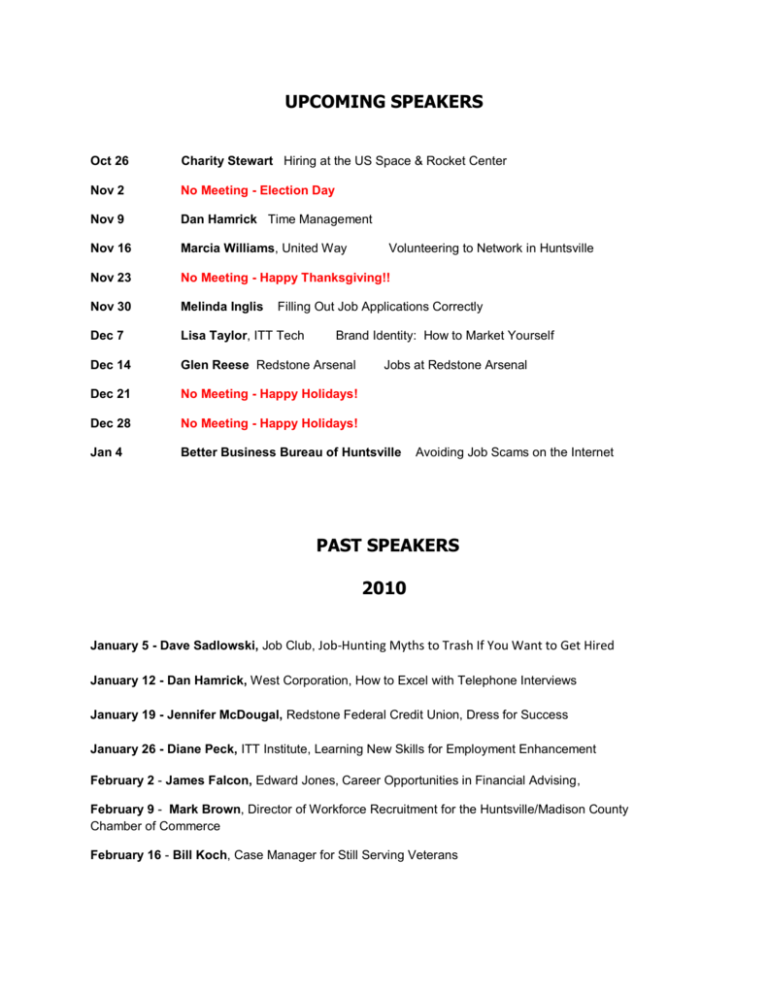Seven Notable Speakers and Their Legacies The New York Times
Table Of Content
Jordan did not answer when pressed on if he would acknowledge former President Donald Trump lost the election, as Buck has said it is important for a GOP speaker to do. Last night after meeting with Jordan, Buck said he is still a “no” on the floor. Jordan said he “hopes” to be speaker by the end of the day and “we will find out here pretty soon” if he has the votes on the floor. "I was the last person on the floor January 6, and the idea that this guy is the Republican nominee to be speaker, a guy who aggressively agitated the activities that happened on January 6, I think is disgusting,” he said.

Speakers by time in office
The job of the Speaker is to keep the House in order and to assign committee memberships and chairmanships. Johnson is currently facing an existential threat to his speakership led by conservative rabble rouser Rep. Marjorie Taylor Greene, R-Ga., who is seeking to force the speaker out from his post for working with Democrats to pass legislation, including Ukraine aid. Still, Jeffries said that a majority of Democrats would vote Saturday for the packages of aid for Ukraine, Israel and allies in Asia. Speaking with reporters, House Speaker Mike Johnson says the aid package is the product of a divided government. After months of delay, the House worked slowly but deliberately once Johnson made up his mind this week to plough ahead with a package that matches, with a few alterations, what the Senate passed in February. President Joe Biden sent a swift endorsement of the speaker’s plan and, in a rare moment, Donald Trump, the Republican presumed presidential nominee who opposes most overseas aid for Ukraine, has not derailed the speaker’s work.
A Garrulous Symbol: Tip O'Neill of Massachusetts
An election for speaker took place on December 6, 1915, at the start of the 64th Congress following the 1914 elections in which Democrats won a majority of the seats. An election for speaker took place on April 7, 1913, at the start[c] of the 63rd Congress following the 1912 elections in which Democrats won a majority of the seats. An election for speaker took place on December 7, 1857, at the start of the 35th Congress, following the 1856–57 elections in which Democrats won a majority of the seats. An election for speaker took place on December 5, 1853, at the start of the 33rd Congress following the 1852–53 elections in which Democrats won a majority of the seats.
January 2011
That dynamic has thrust him into the arms of Democrats as he searches for votes to pass the package. “I definitely sense that there’s a souring to Republican leadership,” he said. “She has been pretty consistent in telling people from the minute she got the job that she was going to stay through the election,” they said. Jean-Pierre’s predecessor, Jen Psaki, was press secretary for one week shy of 16 months before leaving to take a job as a host and analyst at MSNBC. Rachel Brosnahan of Marvelous Mrs. Maisel fame will join CNN's entourage on Saturday, April 27, as she prepares to enter the DC Comics Universe with her starring role as journalist Lois Lane in the 2025 Superman reboot. Pictures — which are producing and distributing the film, respectively — are both owned by CNN's parent company, Warner Bros.
January 1961
Greene could launch a bid to evict Johnson from the speaker’s office, should she call it up for a vote, much the way Republicans booted Kevin McCarthy from the position last fall. Jeffries, the Democratic leader, remained noncommittal to helping Johnson keep the speaker’s gavel, though some Democrats have suggested they would be inclined help defeat the motion to vacate through procedural maneuvers. The sources agreed that Dunn does not appear to harbor any ill will toward Jean-Pierre, with many suggesting that the encouragement that the press secretary shift to an outside role was meant to be a long-term boost to Jean-Pierre that plays more to her strengths. House Republicans selected Ohio Rep. Jim Jordan as their new speaker nominee on Friday — but more than 50 Republicans voted against supporting him on the House floor.
In the 20th century only one election went to multiple ballots (in 1923).[2] In the 21st century, it has happened twice in the same year, in January and in October 2023. Elected by a simple majority of the members of the House, the Speaker is traditionally their party's leader in the chamber, and unlike the other House leadership, the speaker is a constitutional officer as established by Article One of the United States Constitution. At the beginning of a new Congress every two years, the House elects a speaker, either the incumbent, or a new one, depending on party composition and membership of incumbents.
At the same time, an ethics charge against Wright, primarily for profiting from bulk sales of his personal memoir, gained traction in the media and in the House's own ethics committee. Faced with censure or possibly worse, Wright resigned in June 1989, less than six months into his second term as speaker. Additionally, since many speakers held office for multiple terms, often with non-consecutive periods, the time listed for each speaker represents the total length of their time as speaker. It is important to note that the period between the adjournment of one Congress and the convening of the next Congress is not included in the calculations. For instance, Nathaniel Macon served as speaker during both the 8th and 9th Congresses, but the eight-month gap between the two Congresses is not included in his service duration.
An election for speaker took place on January 7, 1959, on the opening day of the 86th Congress, two months after the 1958 elections in which Democrats won a majority of the seats. An election for speaker took place on January 3, 1957, on the opening day of the 85th Congress, two months after the 1956 elections in which Democrats won a majority of the seats. An election for speaker took place on January 5, 1955, on the opening day of the 84th Congress, two months after the 1954 elections in which Democrats won a majority of the seats. Former speaker Sam Rayburn received a majority of the votes cast and was elected speaker, becoming the first member since Henry Clay in the 1820s to have a third stint as speaker.

Background[change change source]
There isn't a speaker of the House, and it's unusual for American history - The Washington Post - The Washington Post
There isn't a speaker of the House, and it's unusual for American history - The Washington Post.
Posted: Thu, 19 Oct 2023 07:00:00 GMT [source]
That committee, once a graveyard for otherwise popular bills, has never been as powerful since. An election for speaker took place on November 4, 1811, at the start[c] of the 12th Congress, following the 1810–11 elections in which Democratic-Republicans won a majority of the seats. Henry Clay, a freshman congressman, received a majority of the votes cast and was elected speaker.[16] This marks the only time in American History a Speaker of the House was elected on their first ever day on its floor.
The hard truth is that the five who preceded Johnson (McCarthy, Paul Ryan, John Boehner, Dennis Hastert and Newt Gingrich) all saw their time in the office end in relative degrees of defeat or frustration. And to find a Republican speaker who left voluntarily in a moment of victory, moving on to another office, you have to go back to the mid-1920s. Two colleagues had spoken up to say they would join Greene in such a vote, giving her enough to defeat the speaker if all the chamber's Democrats voted to do the same. That's what the Democrats did when a motion to vacate the chair ousted the last Republican speaker, Kevin McCarthy, last fall. From 1977 to 1995, three successive Democratic speakers – Thomas “Tip” O’Neill, Jim Wright and Tom Foley – reinvigorated the speakership. They enlarged the party leadership structure, creating wider networks of loyalty among members of the majority party while strengthening support for their priorities.
After Kevin McCarthy, how will Republicans choose a new House speaker? - NPR
After Kevin McCarthy, how will Republicans choose a new House speaker?.
Posted: Thu, 05 Oct 2023 07:00:00 GMT [source]
You can see them from the outside by touring off Earl Street between Silver Lake Boulevard and Glendale Boulevard. One of Frank Lloyd Wright's most important works, in a style he called "California Romantic," designed in 1917 and built between 1919 and 1923 for oil heiress Aline Barnsdall. The complex includes the main house, garage, and one other surviving structure. The house is located at the crest of Laurel Canyon Boulevard and Mulholland Drive and is open for guided tours by reservation only. The house is owned by the MAK Center, which also runs the Schindler House and you'll find details about the tours at the MAK Center website.
A well-preserved and fascinating example of Arts and Crafts architecture, designed by Greene and Greene, it was built in 1908 for David and Mary Gamble of the Procter & Gamble Company. Enjoy a collection of fascinating, historic pieces of Los Angeles architecture that were built as private residences. The components would then be automatically stitched back together into a single package sent to the Senate where hardliners there are also planning procedural moves to stall final approval. At best, Johnson has been able to carve up a Senate-passed version of the bill into separate parts, as is the preference among House Republicans, and the final votes will be on distinct measures — for Ukraine, Israel and Indo-Pacific allies. Multiple former colleagues of Bernal accused him to The Post last month of verbal sexual harassment, building on earlier reports of workplace bullying. “They were like, ‘This is palace intrigue bulls— that was dramatically sensationalized,’” that source said.
An election for speaker took place on January 3, 1969, on the opening day of the 91st Congress, two months after the 1968 elections in which Democrats won a majority of the seats. John W. McCormack received a majority of the votes cast and was re-elected speaker. An election for speaker took place on January 10, 1967, on the opening day of the 90th Congress, two months after the 1966 elections in which Democrats won a majority of the seats.
Schuyler Colfax received a majority of the votes cast and was re-elected speaker. An election for speaker took place on December 4, 1865, at the start of the 39th Congress, following the 1864–65 elections in which Republicans won a majority of the seats. An election for speaker took place on December 7, 1863, at the start of the 38th Congress, following the 1862–63 elections in which Republicans won only a plurality of the seats, but retained control of the House with the assistance of Unconditional Unionist members. Schuyler Colfax received a majority of the votes cast and was elected speaker.
Prior to the GOP's 40-year sentence as the minority party, several of its speakers had risen to the top rung largely on their personal popularity among their colleagues. One was Joseph Martin of Massachusetts, who led the party in the House during two brief interludes of majority status after World War II. Both lasted only the minimum two years, the first ending with Democratic Harry S. Truman's surprise White House win in 1948. Martin was back four years later when Eisenhower was first elected president in 1952, but that tour at the top was cut short by his party's sharp losses two years later.
Comments
Post a Comment